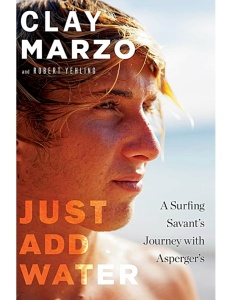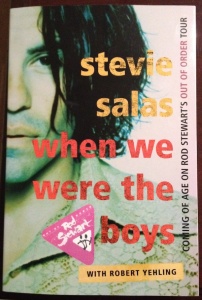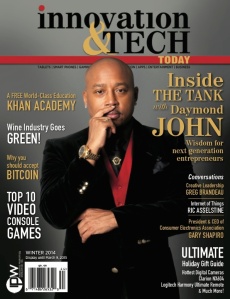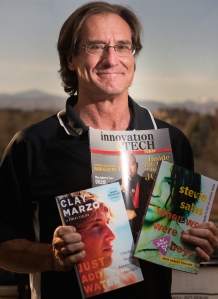More than twenty years ago, Jefferson Airplane’s late great singer and founder Marty Balin and I were walking down Haight Street in San Francisco during the Haight Street Festival, talking music, street scenes, bookstores we loved and writing. We were working on his memoir, and had gotten to be pretty good friends, but I was still a little awestruck by taking a stroll down this street with him.
After all, back when Jefferson Airplane was the second most popular rock band in America, topped only by The Beatles, Haight Street was hallowed ground to the Love Generation — the subculture of Baby Boomers who transformed music, fashion, and the ways we viewed spirituality, the world, creative expression, ways of living and so much more. And Marty was one of the high priests of the hippie scene, through his songs, lyrics and the messages the Airplane transmitted while taking us higher and higher above our perceived limitations.

During our walk, hundreds of people stepped out and greeted him, said how much his music changed, informed or defined their lives. All these faces, flowers of humanity, most with graying hair… few of which he knew. As we moved through the sea of admirers on America’s most sacred street way back in the Summer of Love, 1967, I asked Marty about the secret of writing great songs — and I knew he’d written some of them quickly. His mega-hit “Miracles,” for instance, took him 30 minutes to jot down and another 30 to firm up in a surge of inspiration while in India.
“When something socks you in the gut, and it won’t let you go — write it down,” he said. “That’s the real thing.”
Every time I’ve followed his advice, and written down what socked me in the gut, sure enough, it’s been a keeper — a sentence, paragraph, poem or vignette that needed very little editing. It came straight from that holiest of holy places inside where insight, instinct, imagination, intuition and deepest spiritual or universal guidance conspired with everything we know and perceive and have experienced to create that perfect piece of writing.

Most of the time, for me, it’s happened when I was writing a lot and feeling in the groove, in rhythm, the zone, as athletes call it.
So, fellow scribes, time to sit down and let it rip, “writing and writing for the sake of writing,” as the late rock music writer impresario Lester Bangs said. All for the love of the process, because we love looking out at our world, finding stories, then turning within to bring it all out again in our works.
These creative punches to the gut have been happening for a long time. I’ve been thinking about them a lot lately while working on my memoir, Front Page Pass: Writing Adventures of a Wild Child, as well as the long-delayed sequel to my craft book Writes of Life.
I remember so well those high school, college and young guy all-nighters, when I’d drink coffee and sit at my desk, surrounded by a stack of Rolling Stone, Creem, Sports Illustrated and Mad magazines, my albums next to my multiple-component stereo, headphones at the ready, and write madly onto manual typewriters and archaic personal computers, sometimes cranking out 20 pages a night. What a crazy thing for a teenager to do, right? Well, old habits die hard; it’s 11:50 pm as I write this.
My personal best for a 24-day output was 55 single-spaced pages — about 27,000 words — of my requisite throwaway novel, Within the Crystal, where I wrote characters who hop-skipped from Atlantis to Gobekli Tepi to Stonehenge to Egypt to Tikal to the mound builders of North America, carrying their magics and spiritual ways forward following disaster after natural or man-made disaster from civilizations gone amok… quite a wild story. Wish I still had that manuscript. In that one day, I cranked out miles of words, feeling like the marathon runner I later became. Such a magical feeling, such a wonderful memory.
One time early in my career, when I was still using an IBM Selectric typewriter, I bought a round of butcher paper from Big Bear, the local grocery in my hometown of Carlsbad. I filled and wrapped that roll with stories, vignettes and impressions, a literary journal gone troppo, like my stream-of-consciousness superhero, Jack Kerouac, used to do when he went on his creative rampage in the 1950s and early 1960s. His decade-long streak of autobiographical novels began with The Subterraneans, ended with Big Sur, and landed two beacons of modern American literature down the middle of the runway, On the Road and The Dharma Bums. And his sidewinder sentences… incredible. One in The Subterraneans went on for more than 1,200 words. He said he was trying to show the feeling inside jazz musician Charlie Parker when The Bird blew through a ten-minute saxophone solo. That’s pure writing.
Burn, baby, burn. I say write and write and write for the sake of writing. When I’m in that mood, no one and nothing can stop me from writing. Call it an addiction, an obsession, a compulsion… I don’t care. I see it as feeding my hungry spirit, answering a calling, the gift God handed me in the way all of us have been bestowed with gifts we either open up and share. Or don’t. And it’s been great fun opening and sharing for these past 55 years, since I started laying down longer stories in fourth grade.
For the writers reading this, a challenge: At least once this week, sit down with no preconceived departure point, and just start writing. Don’t stop. Let it rip, let it burn, let those words dance out of your mind like maenads at a bacchanal, or dancers in a Broadway revue. Don’t look at the clock, don’t edit as you go along, don’t worry about punctuation or sentence structure — just write and keep writing. Go where the images or faces flashing through your mind take you, fly out as far as they’ll take you, then reel them in.
And for God’s sakes, if an idea or stream of words socks you in the gut, write it down and take it all the way. That’s the good stuff.















